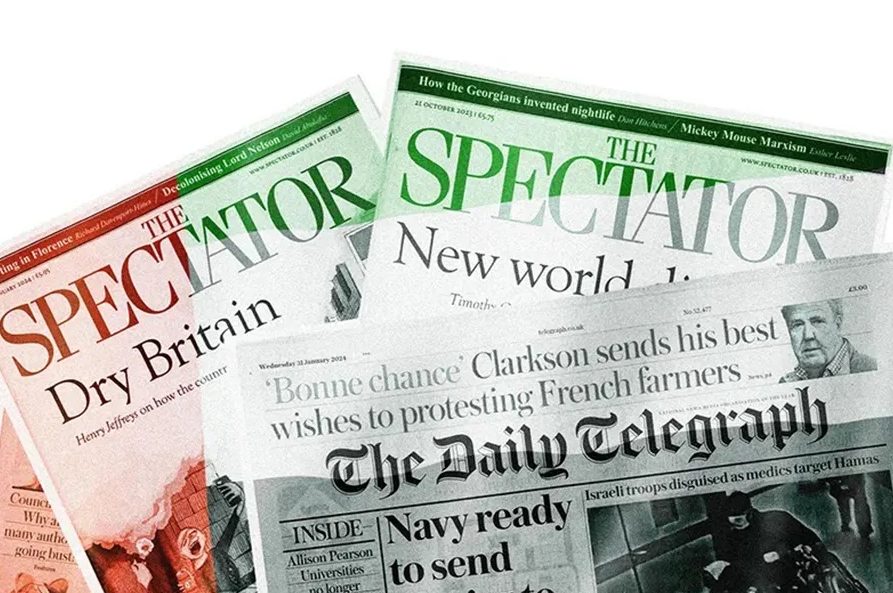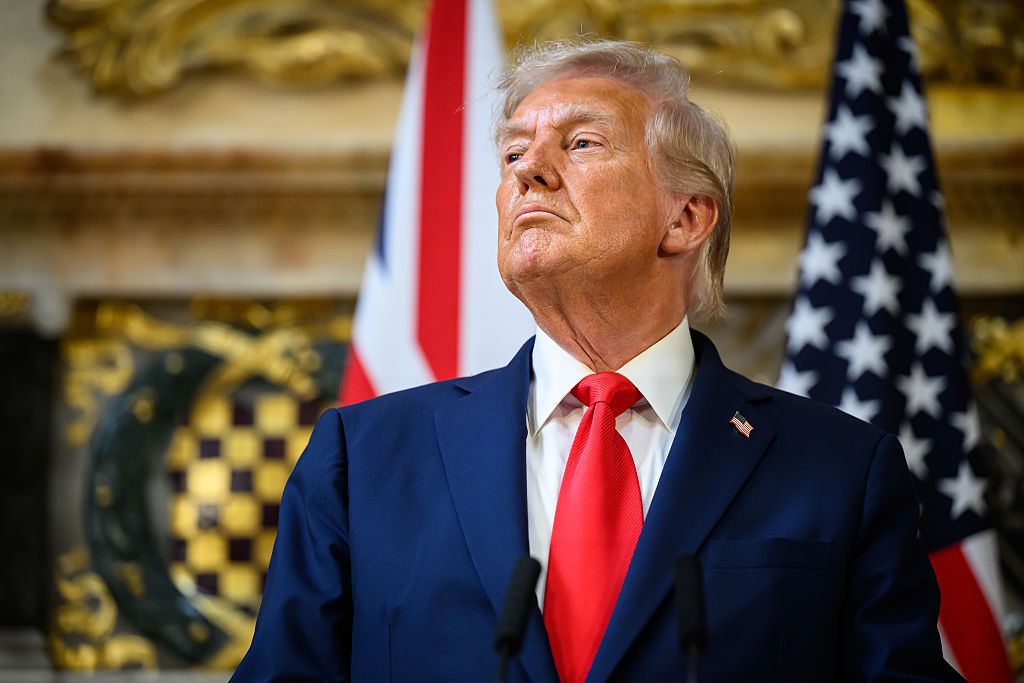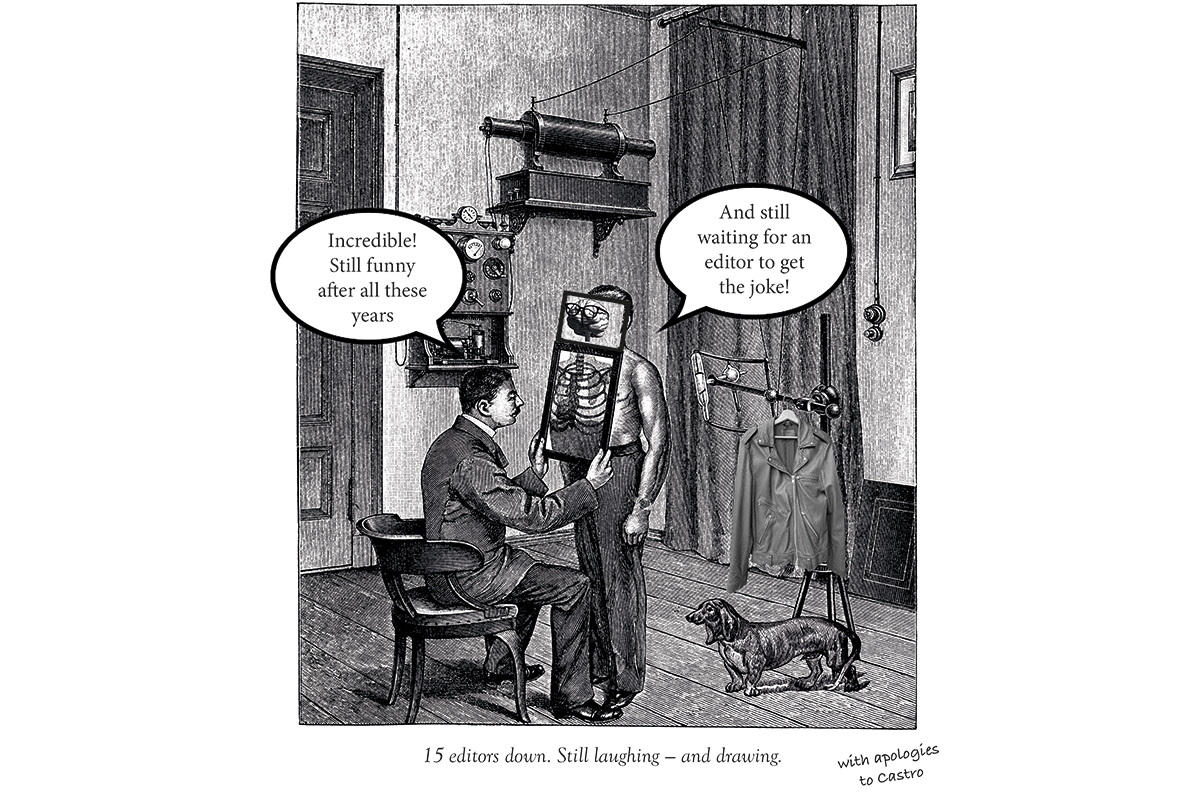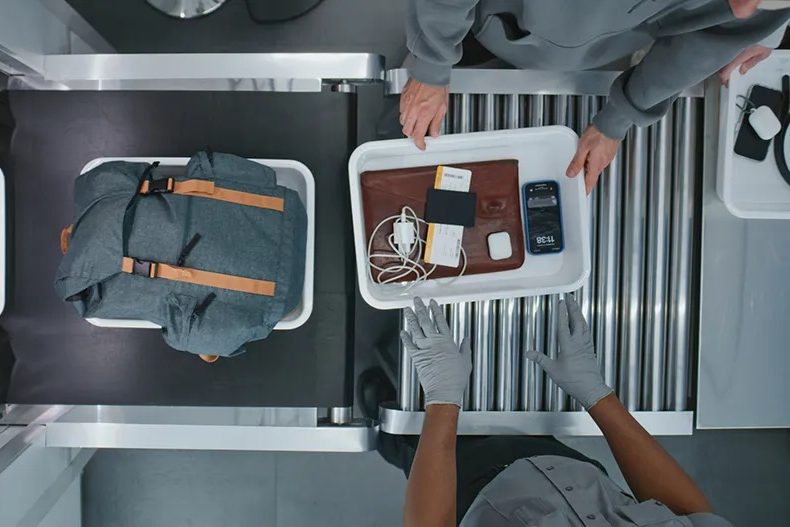This diary is late. Two months late. The columnists who missed my Evening Standard deadlines often had elaborate excuses. Mine is that I’ve been involved in working out who is going to own this magazine. We’ve seen some oddities in this particular drama. Those vehemently opposed to government interference in a free press suddenly calling for government laws to regulate press ownership. Columns from advocates of free trade and open investment in every industry except, it turns out, their own. I don’t doubt some are motivated solely by high principles; but it’s worth asking the question of others: do their high principles happen to accord with their view of who in practice they’d like to see own The Spectator and the Telegraph?
I saw something similar when Rupert Murdoch tried to buy all of Britain’s Sky News over a decade ago. The injury felt by the victims of phone-hacking was genuine — indeed, I was one of them; but the way the issue was exploited by rival newspaper groups and broadcasters was not. They found willing allies among politicians whose pajama parties had not led to the support from the Murdoch press they’d expected. I am as a rule very skeptical of people who see establishment stitch-ups round every corner. But all these years later I still feel angry that it was my friend Andy Coulson who was singled out as the scapegoat and sent to Belmarsh — while the politicians and the proprietors never stopped schmoozing each other.
I did my fair share of that. Once I flew with former British prime minister David Cameron to the island of Brecqhou. There, on a dramatic rocky outcrop in the English Channel, the owners of the Daily Telegraph had built themselves an extraordinary new castle. When we landed we were met by separate golf buggies for a tour, one driven by Frederick Barclay and the other by his identical twin David. The Barclay brothers went to great lengths to insist on the independence of Brecqhou. They flew their own flag and issued their own stamps. The Telegraph and Spectator are no strangers to being owned by overseas powers.
I remember all the photos of Margaret Thatcher on display inside the castle. The brothers generously let her stay at their Ritz hotel for her final months. Back when I had police protection, one of the officers told me a story. They were assigned to guard her — but by then that just consisted of sitting on chairs in the hotel corridor outside her room all day. The one perk was that they could get a free breakfast courtesy of the Ritz. One morning, the two officers head off to the dining room as usual to tuck into a full English. One of their phones went and it’s their supervising officer. “How’s Lady Thatcher doing?” he asked. “Just fine, thanks,” the one with the phone replied. “Oh right, because on the TV it says she’s dead.” Without missing a beat the protection officer said: “Yes sir, we know. The doctors have been coming and going all morning and swore us to secrecy.” Then they rushed back to chairs in the corridor to resume their protection.
I like Rachel Reeves, not least because she’s a regular listener to Political Currency, my podcast with Ed Balls. The other day the Leeds member of parliament picked me on my attempt to mimic the Yorkshire accent of Harold Wilson. She said it was “terrible.” I agreed —more Notting Hill than Huddersfield. I was making the point that her industrial policy harked back to his white heat of the technological revolution. Once, at a private dinner at the 2005 Tory conference hosted by the Daily Telegraph, I suggested that my fellow diner David Cameron was the “heir to Blair.” The Tory refuseniks were appalled. But moving on from lost battles is the key to future success. We accepted parts of the Blair inheritance — social liberalism, the minimum wage and so on, just as Blair had before him accepted the Thatcher inheritance of union laws and the market economy. Now Reeves is saying she wants to strengthen the Office for Budget Responsibility I introduced, adopt austere fiscal rules and won’t put up corporation tax. Is she the heir to Cameron/Osborne? Or have I just lost a listener?
There was a director of public prosecutions who made a name for himself by bringing numerous Murdoch executives to court over phone-hacking. Almost all the cases were dismissed but — put it this way — it certainly didn’t hinder Keir Starmer’s quest for a safe Labour seat. At the time, I remember those he prosecuted swearing that they’d never forgive him, just as I remember Labour saying they’d never deal with Murdoch again. But when the Sun launched its new YouTube political show last week, who did it have as its first guest? Sir Keir. It was a telling choice — I’m sure they could have booked the prime minister. Instead they wanted Keir and Keir wanted them. It turns out that time — and the realities of a twenty-six-point poll lead — are great healers. It’s not so much “The Sun Wot Won It,” more “The Sun Wot Worked Out Who Is Going To Win It.”
My young sons and I got a sneak preview of the brilliant new reptile house at London Zoo. The ZSL is having a renaissance under the leadership of the director, Matthew Gould. His stellar career has taken him from Britain’s foreign office to its national health service. Now he’s fizzing with ideas for the zoo, from research campuses to new visitor facilities. I hope the Defra department shows a bit more energy than some of the comatose lizards in the Reptile House and backs his ambition. As for me, it’s good to be back on these pages among the reptiles of Fleet Street.
This article was originally published in The Spectator’s UK magazines. Subscribe to the World edition here.






















Leave a Reply